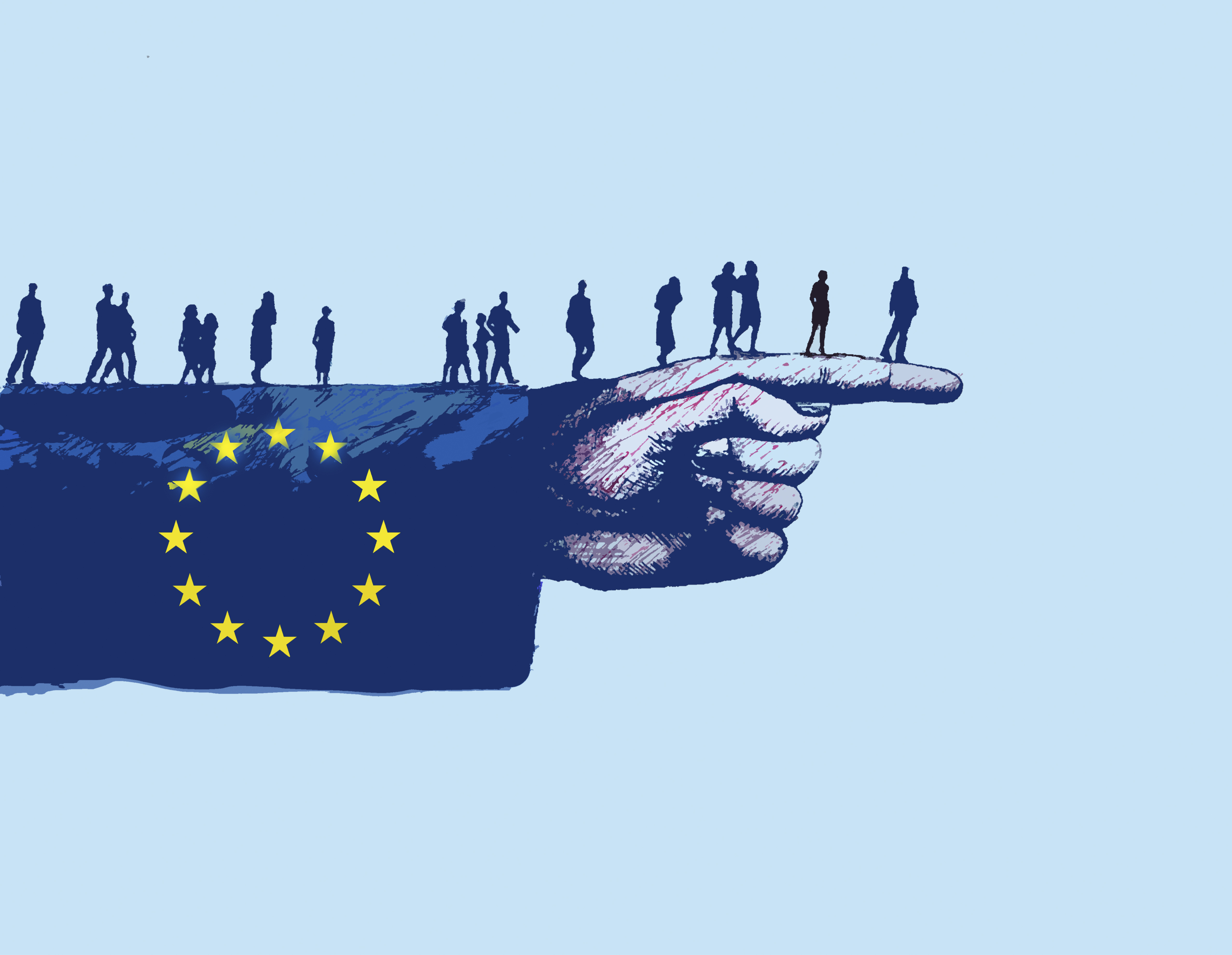The end of the European nation-state?
The EU has unleashed forces beyond its control


A free daily email with the biggest news stories of the day – and the best features from TheWeek.com
You are now subscribed
Your newsletter sign-up was successful
We live in anti-establishmentarian times. The biggest political sensations in the U.S. are Donald Trump and Bernie Sanders. In the U.K., it's the far-left Labour leader Jeremy Corbyn. France's Marine Le Pen is riding high.
But while Trump campaigns as a Republican to "Make America Great Again!", in Europe this anti-establishmentarian fervor also takes the shape of independence movements in regional blocs. There was Scotland's independence referendum which showed how out-of-touch European elites are, followed by the obliteration of Britain's Unionist Labour Party in its former stronghold of Scotland by the Scottish National Party. And now in Spain's region of Catalonia a pro-independence party has won a majority of seats in a regional election.
Is this the end of the nation-state?
The Week
Escape your echo chamber. Get the facts behind the news, plus analysis from multiple perspectives.

Sign up for The Week's Free Newsletters
From our morning news briefing to a weekly Good News Newsletter, get the best of The Week delivered directly to your inbox.
From our morning news briefing to a weekly Good News Newsletter, get the best of The Week delivered directly to your inbox.
A couple things should be kept in mind.
The first is that, at this stage, it seems what most people want is the frisson of anti-establishment rebellion rather than the reality of it. The Scots booted out Labour and brought in SNP in a parliamentary election, but still voted against independence. The Greeks are content to keep voting for Syriza as long as it stays pro-euro and pro-bailouts. Thus far — an important caveat — it looks like what the people want is a bigger shake-up of the status quo than elites are prepared to stomach, not a complete overturning of it.
The second is that independence movements are both for and against the nation-state. After all, what an independence movement says is, "We like nation-states so much, we want our own." Nobody takes credibly anymore the 1990s wishful thinking that we would all be swallowed up in transnational, even global, communities, with the nation-state a thing of the past. When it comes to things like waging wars, managing floods of refugees, or making sure money is safe in the event of a bank run, people still turn to the nation-state.
But, in a way, that's sort of the point.
A free daily email with the biggest news stories of the day – and the best features from TheWeek.com
Since the end of World War II, European elites have held to the belief that the source of Europe's tendency for total war was nationalism, and that the way to abolish nationalism in Europe was to create a European super-state, a "United States of Europe." The European Union is the brainchild of this decades-long project, a project that has advanced, by and large, at the behest of European elites against nations and, sometimes, their democratically-elected leaders (whether Alexis Tsipras today or Charles de Gaulle in the 1960s).
One component of this project has been to — under the logic of "the enemy of my enemy is my friend" — use European monies and rhetorical talk of diversity to strengthen regional identities within its nation-states. The idea is that if I'm a French Basque and I feel strongly about my Basque identity and my European identity, my French identity will be, as it were, squeezed out. And if competencies are simultaneously devolved down from the nation-state to regions, and up to the EU, nation-states will be hollowed out.
The problem is that it's not just in the Middle East that sometimes the enemy of your enemy is also your enemy. Catalonians and Scots don't seem particularly enthused by the EU — indeed, no one is — which they see as imposing punishing austerity and bailouts, and it's doubtful whether successful European independence movements would lead to a European superstate or just one more layer of institutional chaos.
What this should be, though, is a lesson to Europe's elites. Facts are stubborn, and nationhood is one of those facts of history that keep reasserting themselves. When it looked like Scotland might actually vote for independence, Britain's elites were struck witless with fear over something which they themselves invited through decades of neglect for their own nationhood.
Europe's elites have unleashed forces that it's clear they can't control to an outcome no one will predict. And that's hardly good news.
Pascal-Emmanuel Gobry is a writer and fellow at the Ethics and Public Policy Center. His writing has appeared at Forbes, The Atlantic, First Things, Commentary Magazine, The Daily Beast, The Federalist, Quartz, and other places. He lives in Paris with his beloved wife and daughter.
-
 How the FCC’s ‘equal time’ rule works
How the FCC’s ‘equal time’ rule worksIn the Spotlight The law is at the heart of the Colbert-CBS conflict
-
 What is the endgame in the DHS shutdown?
What is the endgame in the DHS shutdown?Today’s Big Question Democrats want to rein in ICE’s immigration crackdown
-
 ‘Poor time management isn’t just an inconvenience’
‘Poor time management isn’t just an inconvenience’Instant Opinion Opinion, comment and editorials of the day
